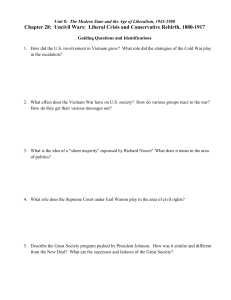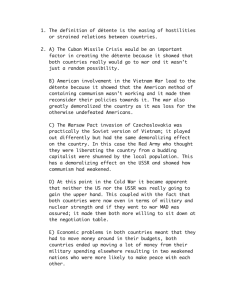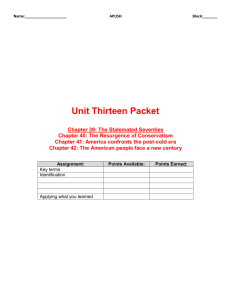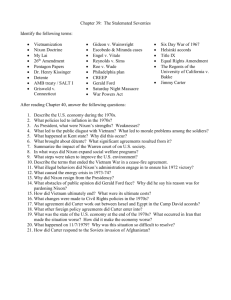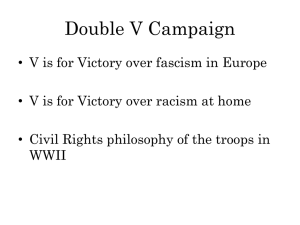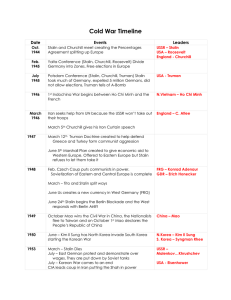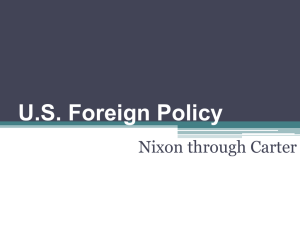Detente
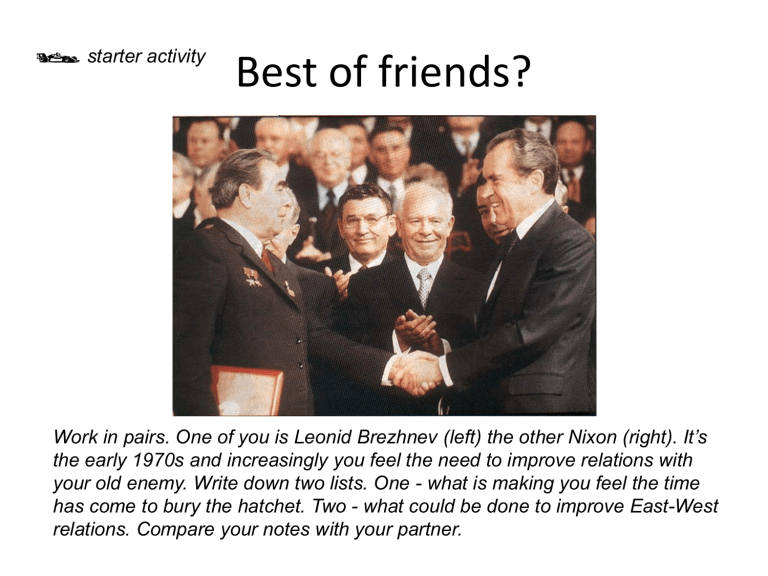
starter activity
Best of friends?
Work in pairs. One of you is Leonid Brezhnev (left) the other Nixon (right). It’s the early 1970s and increasingly you feel the need to improve relations with your old enemy. Write down two lists. One - what is making you feel the time has come to bury the hatchet. Two - what could be done to improve East-West relations. Compare your notes with your partner.
Why was there a ‘ détente
’ in the
1970s?
Definition: ‘Easing’ of tension between the United States and the
USSR
Vietnam War
• US backed controversial South Vietnam against Communist North Vietnam
• US commitment increased in 1960s from sending military advisers to deploying ½ million soldiers
• Student protests, negative media coverage, increased US desire to withdraw
• New president Nixon wanted to make changes
Arms race
• Escalating cost of nuclear arms
• Stockpiling of arms
• Futility of MAD
• USSR & US wanted to reduce defence budget to invest in domestic economies
World Oil Supplies
• Arab- Israeli conflicts threatened to disrupt oil supplies & access to Suez Canal
• Rapid increase in oil prices affected industrialised economies, e.g. US & USSR
Relations with China
• US & USSR concerned about growing power of
China
• China & USSR agreed over Vietnam, but quarrelled over other issues
• US worried about Communist alliance between USSR & China
Initiatives of President Nixon
• Nixon & Henry Kissinger, Sec. of State, travelled widely (shuttle diplomacy)
• Brezhnev wanted more trade with West
• 1972 Nixon visited Moscow (1 st US presidential visit since Roosevelt went to
Yalta)
• 1974 Brezhnev visited Washington
• 1972 Nixon visited Mao Zedong in Beijing,
China
Your task
You are President Nixon and you are going to give a TV broadcast on the reasons why the US must improve relations with the USSR. Write yourself a short script highlighting the mains reasons for détente, but be careful not to appear weak or cynical (i.e. you are not following this policy out of self-interest)


